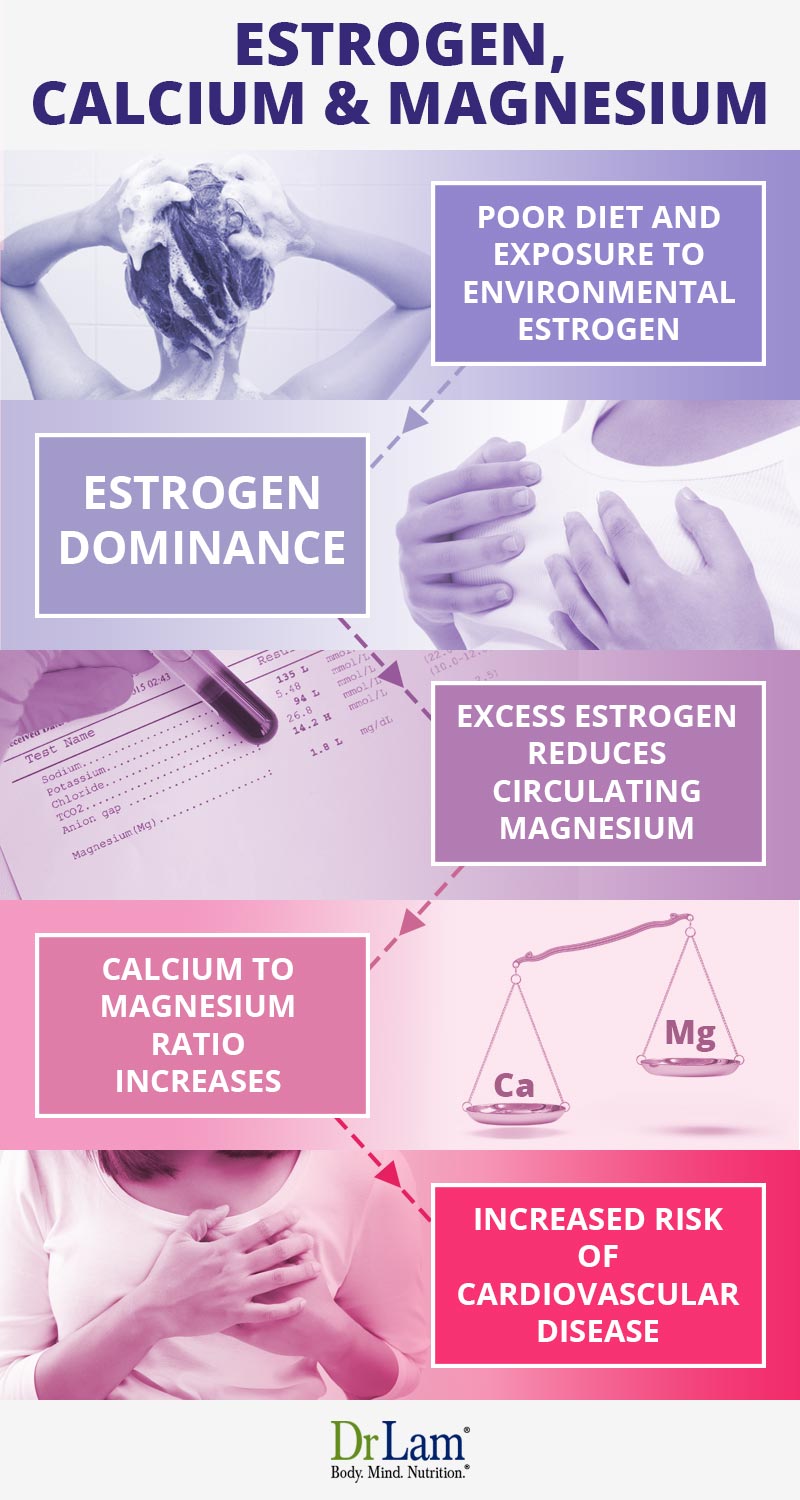 Here is a good clinical case to illustrate estrogen and calcium, and the interrelationship between these three important factors for healthy aging. Here is some background: A 65 year old patient in good health with family history of hypertension. She has had a complete hysterectomy 6 years ago and is on hormone replacement of synthetic estrogen (Premarin) 0.625 mg once a day. A major question is: How do estrogen and calcium interact in a low magnesium condition?
Here is a good clinical case to illustrate estrogen and calcium, and the interrelationship between these three important factors for healthy aging. Here is some background: A 65 year old patient in good health with family history of hypertension. She has had a complete hysterectomy 6 years ago and is on hormone replacement of synthetic estrogen (Premarin) 0.625 mg once a day. A major question is: How do estrogen and calcium interact in a low magnesium condition?
The patient wishes to take calcium and magnesium but is not sure how much.

When discussing estrogen and calcium in the body, we need to understand how stress works. Under stress, the body’s hypothalamic-pituitary-adrenal (HPA) axis is activated, essentially speeding up the body to fight stress. This action includes speeding up the heart rate. The adrenal glands secrete cortisol to fight the stress. Ideally, the effects of stress are handled adequately, and the body slows down again. But if stress continues, the adrenals may become unable to keep up with the demand for cortisol, eventually reaching a state of complete fatigue, not allowing a slow down.
Adequate addressing of stress and its detrimental effects requires physicians to adopt the NeuroEndoMetabolic model of stress response. This model considers all the interacting systems of the body and the effects of stress on them. The cardionomic system is disrupted under continued stress and may lead to significant heart involvement. High blood pressure, palpitations, arrhythmias, and even atrial fibrillation may result. This constant activation of the cardionomic system doesn’t allow for rest and repair needed by our bodies.
As shown in conditions of low magnesium and high calcium that can occur in the presence of a high estrogen environment, heart involvement will be present. Previously, the conventional wisdom was estrogen protected women against heart disease. And at menopause, estrogen needed to be replaced to continue this protection. However, research has more recently linked hormone replacement therapy (the use of synthetic estrogen) to higher risk of heart attack.
In addition, low magnesium levels have also been linked to heart disease. In fact, some researchers believe low magnesium levels to be the best predictor of heart disease, rather than high fat levels in the diet and high cholesterol.
So, elevated levels of calcium and low levels of magnesium raise the likelihood of heart disease. This, estrogen dominance, too much calcium, and not enough magnesium set the stage for heart-related health problems to develop too easily.
 What do you do? Simply reduce calcium intake and increase magnesium. The ideal ratio is Ca/Mg ratio of 1 to 2 for adults. The same rule does not apply to growing children, and does not apply to those who are on whole food.
What do you do? Simply reduce calcium intake and increase magnesium. The ideal ratio is Ca/Mg ratio of 1 to 2 for adults. The same rule does not apply to growing children, and does not apply to those who are on whole food.
a. Obtain intracellular calcium and magnesium blood level if you want to be scientific about it.
b. Reduce calcium to 300-500 mg a day.
c. Increase magnesium to 500-1000 a day, or as tolerated (excessive amount can cause diarrhea).

